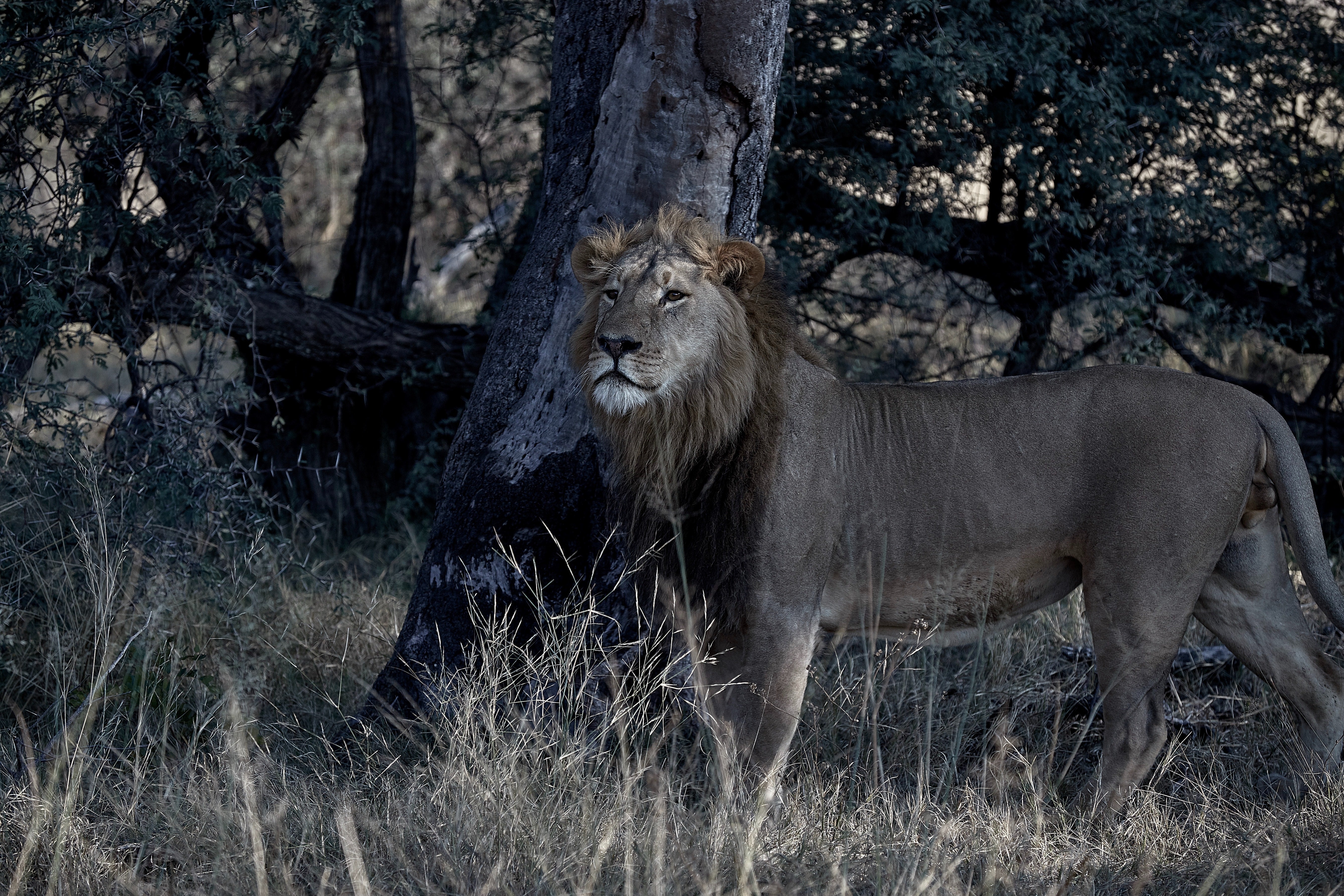Zimbabwe Parks Authority tightens security in Hwange National Park
A new rangers camp will cover poaching blindspots

By Tatira Zwinoira for The Independent in Zimbabwe
Under the mild sun of May, the whirring sound of the drone could be heard with almost every step taken.
Like the watchful eye of “big brother” in the sky, one would not look up to know a drone was hovering several metres above a group of journalists close by.
It stayed with the group as they were being shown the construction of several buildings in northwestern Zimbabwe’s Hwange National Park’s new campsite, “Makona”, located some 100 kilometres from the main camp.
The campsite is being built by the Zimbabwe National Parks and Wildlife Management Authority (ZimParks) and will consist of eight blocks, an entertainment facility, administration office, and a state of-the-art security checkpoint.
Makona is expected to cover 4,000 square kilometres within the park, which spans over 14,000square kilometres of wilderness.
“This is going to be a state-of-the-art facility that will house our rangers to monitor the wildlife area in and around the camp,” said ZimParks spokesperson Tinashe Farawo, who led the group of journalists during a one-week media tour.
Farawo told journalists the drone is just a concept of the type of high-level security implemented by the authority.
By building these new campsites, ZimParks aims to avoid a repetition of the 2013 massacre of more than 120 elephants, which were poisoned by poachers.
Farawo said when the elephants were poisoned, it was difficult for ZimParks to move from the main camp to the site. He added that having onsite housing would also make it easier for rangers to respond to wildlife affecting nearby communities.
One of the nearest communities from the park is Tsholotsho district, located some 10 kilometres away.
Farawo said construction of Makona will ensure rangers are able to protect elephants. Hwange National Park still has a number of blind spots where poaching can occur, hence the need for onsite rangers.
“We have about eight blocks which will house two families per block, then the administration office. There will be a house for our officer-in-charge (of the camp). There will also be a workshop…but mainly it is to improve the welfare of our rangers,” Farawo said.
“Now, the camp will be fully fledged with an officer-in-charge, with a staff complement which can react to distress calls from communities.”
He said it would also ensure that officers, because of the accommodation, will now have improved welfare.
“It is because of IFAW (International Fund for Animal Welfare) who are doing a massive job. Our officers will also have entertainment centres so that they can also relax after work,” Farawo said.
“They can watch DSTV, play snooker, soccer, and enjoy many other entertainment facilities.” Makona previously had two buildings, with the construction of the new buildings being supported by budgetary support of US$2 million (£1.6 million) from IFAW, a United States- based animal conservation organisation.
“This is a massive project which is a result of our partnership with the International Fund for Animal Welfare. Over the last two years, they have provided more than US$2 million (£1.6 million) and we are extremely grateful,” Farawo said.
“The road we have used from the main camp to here, Makona, is about 100 kilometres, and at some point you needed to spend a day travelling by that road because of the Kalahari sands.
They have assisted and it's now navigable. We used to deploy our rangers here from the main camp and considering that kind of distance it was really costly.”
However, ZimParks is limited in its ability to provide housing facilities and carry out its general mandate of conservation as the Covid-19 pandemic significantly reduced tourism revenue.
For 2022, as reported in this edition, ZimParks is underfunded to the tune of US$6,76 million (£5.41 million). This has meant it is struggling to pay its staff.
“We are talking about operational salary funds that amount to about ZW$55 million (£142,660) in local currency per month…the accommodation of our rangers needs to be improved,” ZimParks director general, Fulton Mangwanya, said in an interview.
“Right now, I am behind by a month or two in paying these salaries and the danger is that if we don’t pay these rangers, they will become poachers.”
He said there were slightly above 2,000 rangers but an additional 1,000 are needed.
This article is reproduced here as part of the African Conservation Journalism Programme, funded in Angola, Botswana, Mozambique, and Zimbabwe by USAID’s VukaNow: Activity. Implemented by the international conservation organization Space for Giants, it aims to expand the reach of conservation and environmental journalism in Africa, and bring more African voices into the international conservation debate. Read the original story here.
Join our commenting forum
Join thought-provoking conversations, follow other Independent readers and see their replies
Comments